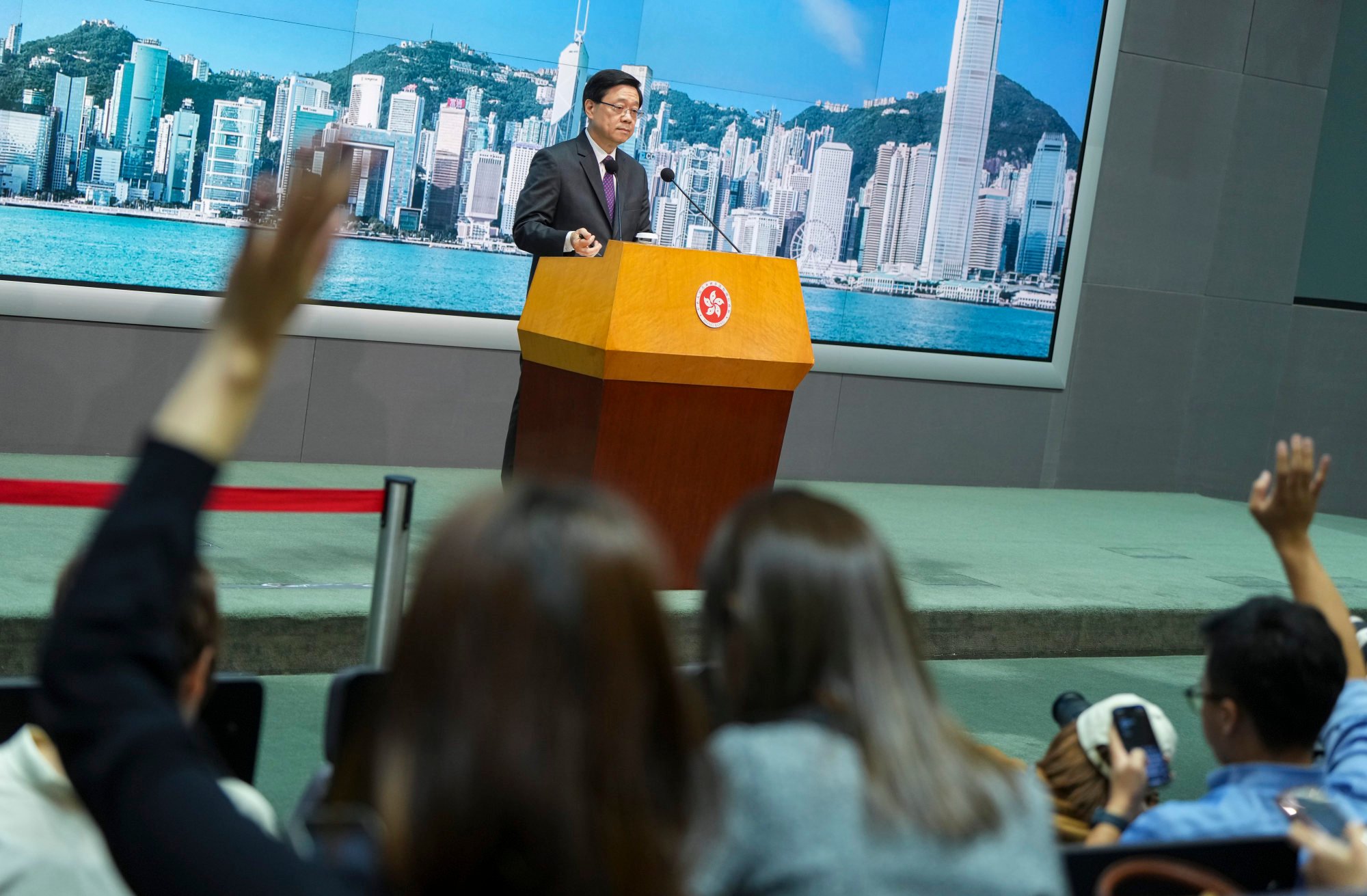
Televised session where Hong Kong’s John Lee takes questions from lawmakers to be revamped to focus on specific policies, ‘unleash potential of patriots’
- Chief Executive John Lee says first meeting to focus on national development, and it won’t be compulsory for legislators to pose questions
- He says such talks will be regarded as new channel to gauge views on annual policy blueprint, while voicing hope for greater legislative-executive ties
A regular televised session in which Hong Kong’s leader takes questions from lawmakers will be revamped into an “interactive exchange” focusing on policies of “vital importance”, with the first one next week centred on integration into national development.
“Council members can put questions to the chief executive or just express their views on specific issues … The chief executive can also consult members for their opinions,” Lee said, adding that Legco president Andrew Leung Kwan-yuen had endorsed his idea.
While lawmakers generally welcomed the revamp, one said he was against the idea of the government setting the agenda for each session.
Lee said it would be an “interactive, consultative” exchange that aimed to “further unleash the potential of patriots” and help authorities reach a consensus with legislators on key policies.
“The session will help us come up with policy priorities … so residents can benefit the most from our governance.”

The coming talk set for next Thursday in Legco will focus on the spirit of the 20th Communist Party congress, which concluded last October, and the country’s annual meetings of the top legislature and political advisory body which ended in March.
“These two topics of vital importance and with substantial details affect Hong Kong directly. We must proactively take part in national development plans to fully benefit under ‘one country, two systems’,” Lee said, referring to the principle under which the city is governed.
According to Legco’s Rules of Procedure, the chief executive “may at his or her discretion” answer questions by members on the work of the government.
Several question and answer sessions have been held in each legislative session since the handover from British rule in 1997 while opposition lawmakers often grilled the city leader over contentious issues before Beijing’s electoral overhaul two years ago, which left the legislature as “patriots only”.
There were no restrictions on topics, and lots were drawn to decide who should ask questions at the sessions, which lasted up to 1½ hours.
Lee said in the revamped version, he aimed to combine advantages of the three existing Legco procedures – question and answer sessions, motion debates and consultation sessions for the annual policy address.
He said he regarded such sessions as a new channel to gauge views on his annual policy blueprint.
“We became a harmonious whole and united unprecedentedly to pursue the same goal,” he said, voicing hope that solidarity, interactions and vision would be enhanced through deepened collaboration.
When Lee took office last July, he led top officials to initiate closed-door, informal antechamber talks with lawmakers to exchange views on policies.
Legco president Leung on Tuesday said the revamped version highlighted that Lee valued “two-way” exchanges with lawmakers, urging fellow members to take the pulse of public opinion and give constructive advice.
But Tik Chi-yuen, the sole lawmaker not from the pro-establishment camp, said it was unsatisfactory for the government to set the agenda for each of the talks.
“Hong Kong’s integration into the mainland has been sufficiently discussed on other occasions. The original intention of the session was to provide us with a chance to press ahead with tough questions,” he said.
“I plan to ask about the district election reform, which has far-reaching effects on the people.”

Lawmaker Doreen Kong Yuk-foon disagreed, saying a preset agenda would allow both sides to better prepare for the exchanges.
“The more important thing is to keep them transparent, so that citizens can judge Lee’s performance on their own,” said Kong, a lawyer by profession.
Legislator Chan Yung of the Democratic Alliance for the Betterment and Progress of Hong Kong said he expected the revamp could achieve more effective communications when members were not confined to asking questions.

